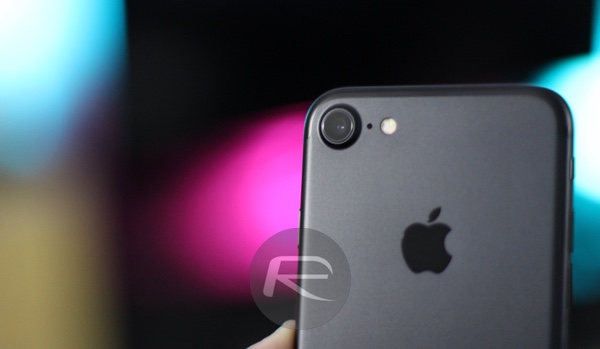Do we have “modemgate” here? LTE speed test comparison of iPhone 7 Intel Vs Qualcomm modem variants show one being slower than other in LTE data throughput.
When Apple released the iPhone 7 and the iPhone 7 Plus, it took the decision to build the devices with LTE modems from two different sources, Qualcomm and Intel. The A1778 and A1784 iPhone models (AT&T and T-Mobile) use a GSM-only Intel XMM7360 modem, and the A1660 and A1661 iPhone models (Sprint and Verizon) use a GSM and CDMA-compatible Qualcomm MDM9645M modem.

That all sounds great, we’re sure you’re thinking, so why would anyone really care? After all, phone makers use parts from different companies all the time, right?
Right. But sometimes, the parts used differ in key ways, with performance being one of those ways and, according to testing carried out, that’s exactly the situation Apple has created here. During tests carried out by Cellular Insights using an R&S TS7124 RF Shielded Box, two R&S CMW500, one R&S CMWC controller, and four Vivaldi antennas, it would certainly appear that iPhones using Qualcomm’s LTE chip perform better than those using Intel’s part. In fact, with the tests attempting to simulate use across a few bands and differing distances from cellular antennas, Cellular Insights has managed to build an interesting picture of just how the two chips differ.
Both iPhone 7 Plus variants perform similarly in ideal conditions. At -96dBm the Intel variant needed to have Transport Block Size adjusted as BLER [Block Error Rate] well exceeded the 2% threshold. At -105dBm the gap widened to 20%, and at -108dBm to a whopping 75%. As a result of such a huge performance delta between the Intel and Qualcomm powered devices, we purchased another A1784 (AT&T) iPhone 7 Plus, in order to eliminate any possibility of a faulty device. The end result was virtually identical.
At -121dBm, the Intel variant performed more in line with its Qualcomm counterpart. Overall, the average performance delta between the two is in the 30% range in favor of the Qualcomm.
As is often the case with these kinds of studies though, we find ourselves mildly dubious as to whether anyone will really notice a difference between the two chips used by Apple. Both are quick, and with LTE transfers already faster than many home broadband connections, it’s fair to say that very few people will be disappointed with how their iPhone fares in the LTE transfer speed stakes.
We now find ourselves wondering what else is different between iPhones – we already know the storage used in different iPhones can impact data access speeds, for example.
(Source: Cellular Insights)
You might also like to check out:
- Fifth-Wave iPhone 7 Launch Kicks Off In New Countries Starting October 20
- iPhone 7 ‘The Home Button May Need Service’ Message: What It Means And What You Need To Do
- Hissgate? Some iPhone 7 Units Allegedly Make Hissing Sound When Put Under Heavy Load
- Tips To Fix iOS 10 Bluetooth Problems And Issues On iPhone
- The Best Pokemon Go Cheats, Tweaks, Tips [Guide]
You can follow us on Twitter, add us to your circle on Google+ or like our Facebook page to keep yourself updated on all the latest from Microsoft, Google, Apple and the web.
